I recently watched the documentary Soufra. It’s won awards at film festivals from the Vatican to Israel to Chicago, and is now available on Hulu. Soufra takes place in the Bourj el-Baranjneh refugee camp, located outside Beirut, Lebanon. The camp was established in 1948 to accommodate the flow of Palestinian refugees who had been forcefully ejected or had fled their homes for fear of the ongoing war.
68 years have passed since the war ended, yet Bourj el-Baranjneh continues to house its refugees, with more people flooding in from the conflicts in Syria. 50,000 men, women, and children live within the camp’s one square kilometer bounds. Soufra documents their lives among the concrete towers that have come to define the camp.
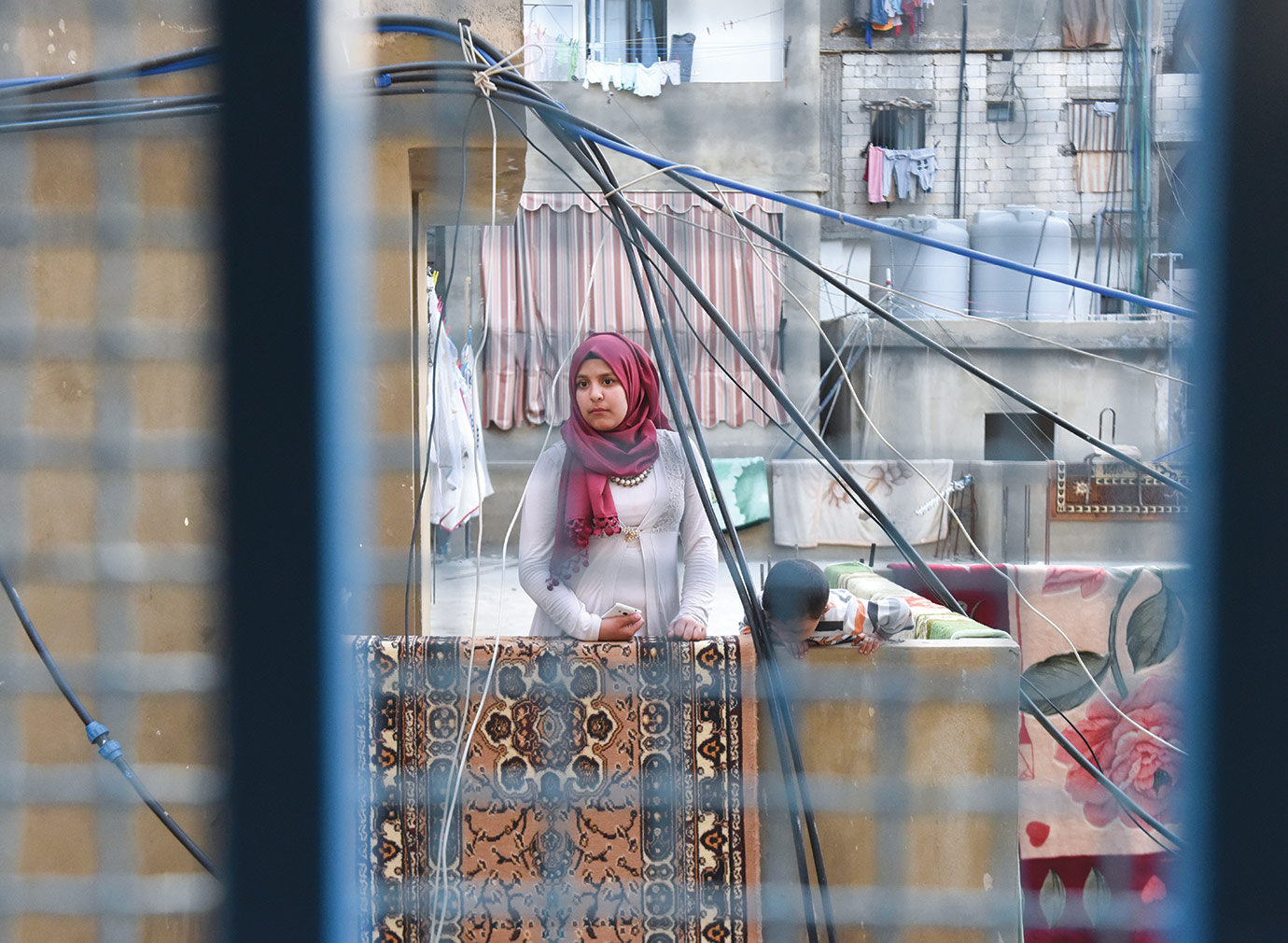
The dangerously dilapidated infrastructure and close quarters speak to the claustrophobia that the camp’s inhabitants must withstand. Lebanon’s policies limit Palestinian refugees’ opportunities to obtain permits for work outside the camp. Lacking passports, there is little hope of leaving Lebanon. With few avenues for education or employment, this stateless population remains mired in grinding poverty.
The documentary focuses on Miriam Shaar, a third-generation refugee born and raised in Bourj el-Baranjneh. Speaking to a group of women in the camp, Shaar poses a question: “What can we do to improve our lives, to earn a living?” One way to do so, Shaar and the women conclude, is to begin somewhere familiar, doing something that is already incorporated into daily life: cooking.
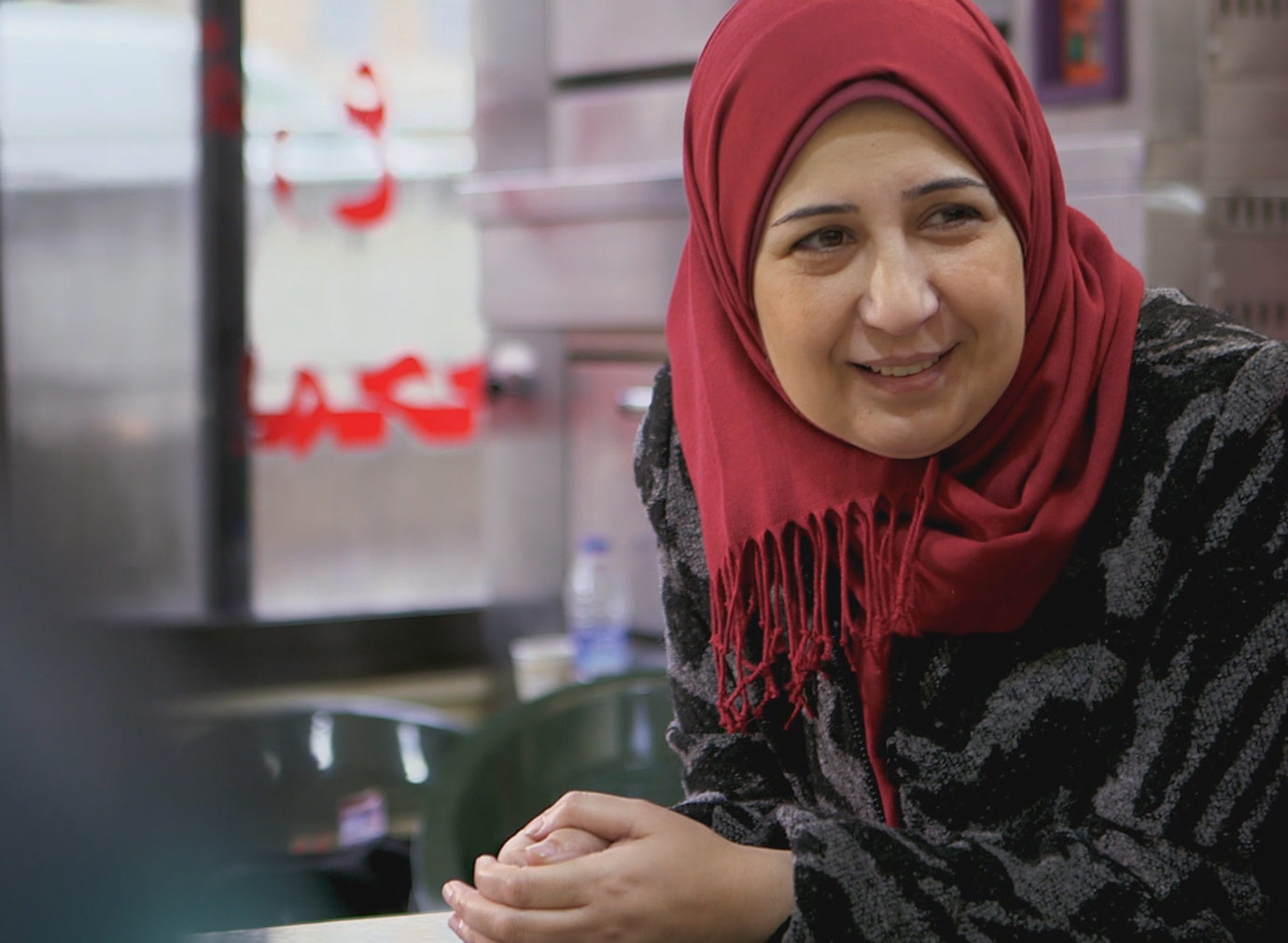
Miriam is a visionary and a profoundly determined entrepreneur. Against tremendous odds, she leads the women in establishing a catering company “Soufra,” which means bountiful table in Arabic. With extraordinary determination and grit, she expands the business to include a food truck, a process that takes almost two years of navigating bureaucratic mazes.
We finally see her behind the wheel for the first time at age 42, triumphantly driving the new truck into Bourj el-Baranjneh. The food truck allows the women a path outside the camp’s restricted confines, and exposes them to another world. They gain a respect for their skills, beyond the parameters of their traditional roles as wives and mothers. The company’s success acknowledges the economic value of their labor.
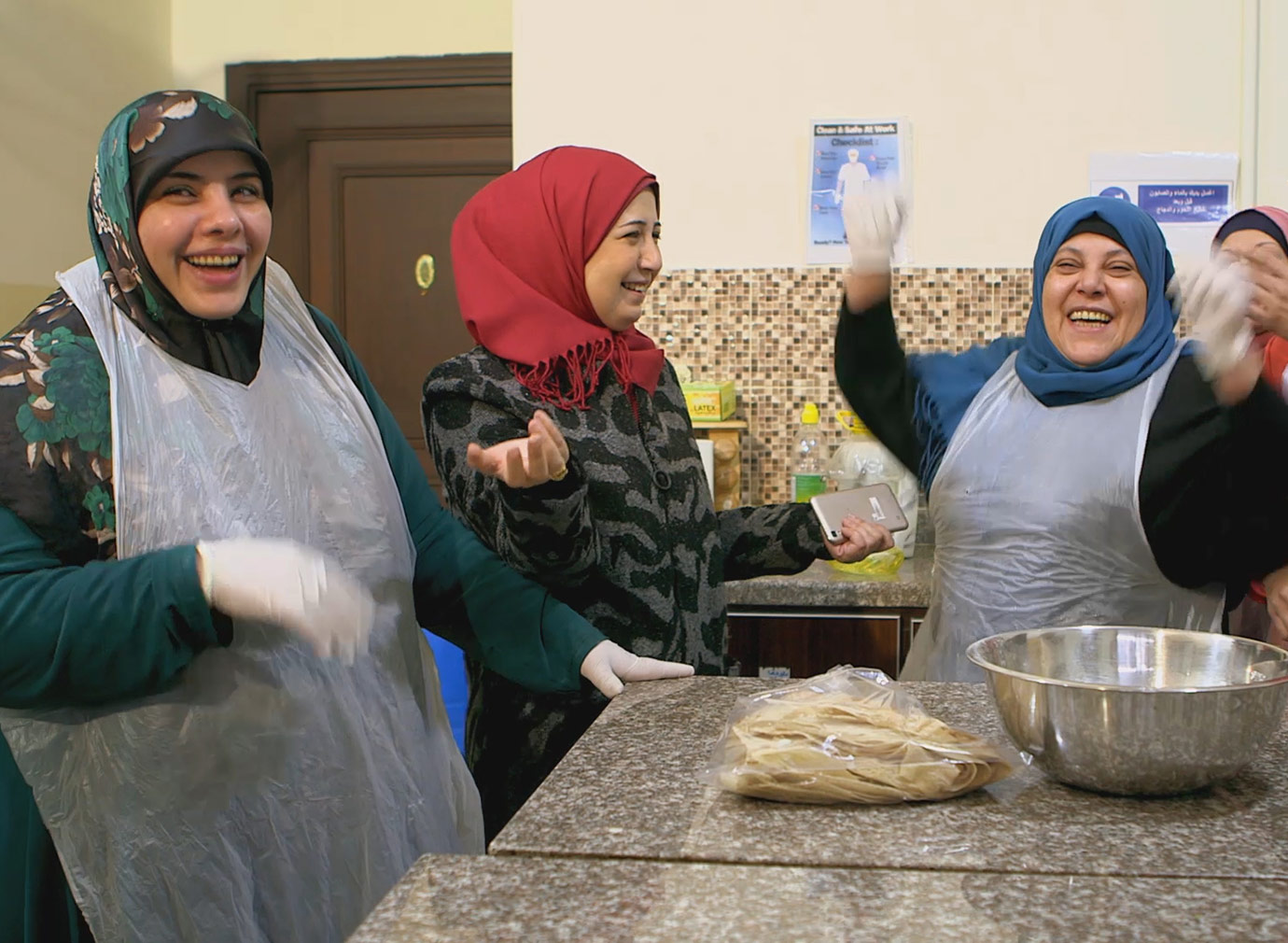
Cooking together begins to break down barriers between women of Syrian, Iraqi, Palestinian and Lebanese descent. The camaraderie between the women and the dishes they prepare also ensure their connection to Palestine, to a core identity for people who have been in exile for generations.
Today, Soufra employs 22 women. The food truck makes its rounds to neighborhoods all over Beirut. There is a new rooftop garden above the production kitchen, and plans for a children’s center that will provide education, recreation and a safe place for kids while the women work. The women used their recipes to create a cookbook, Soufra, which is sold online, with all profits supporting the social enterprise. You can also make contributions to the Soufra Fund through their website.
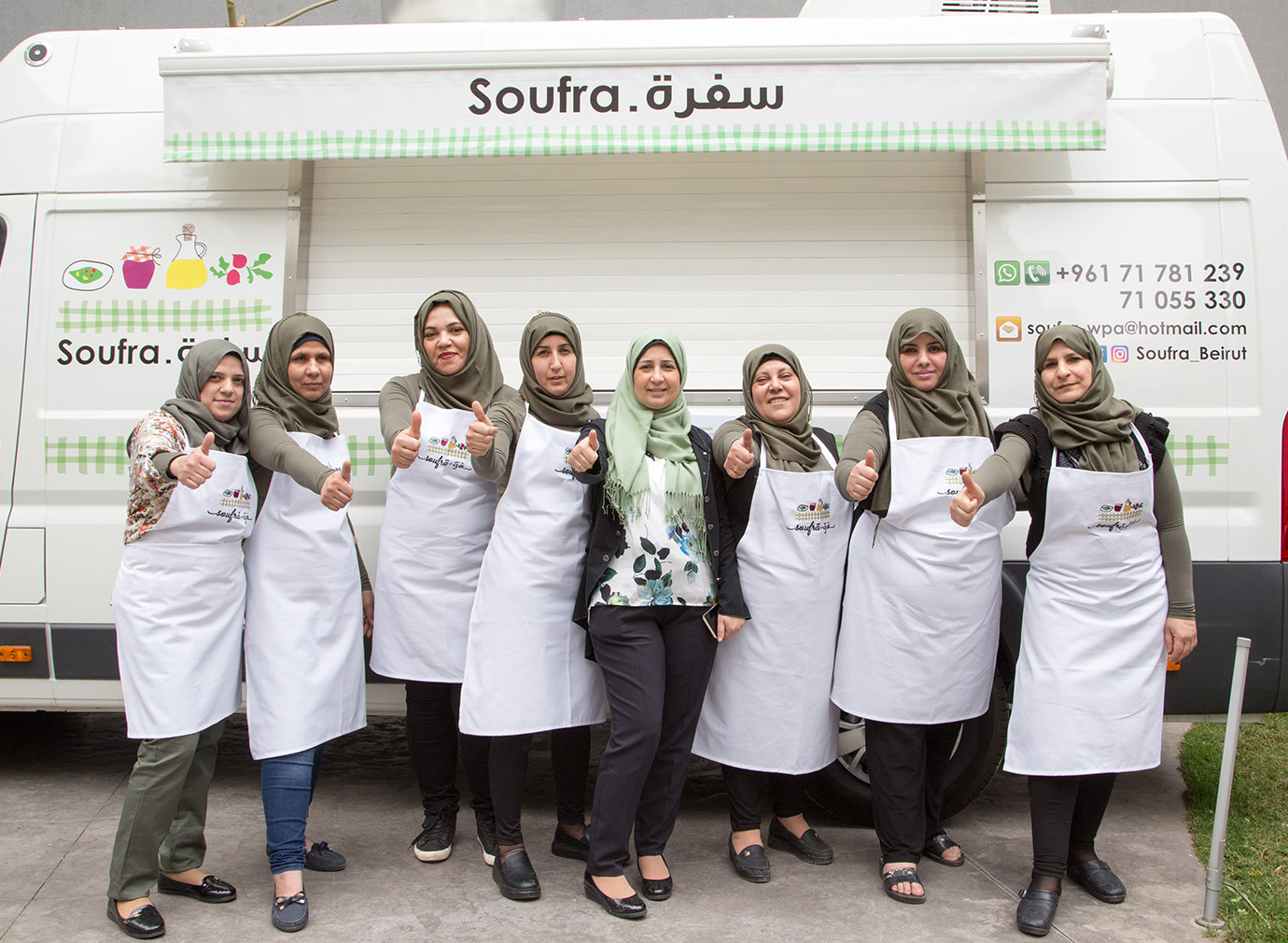
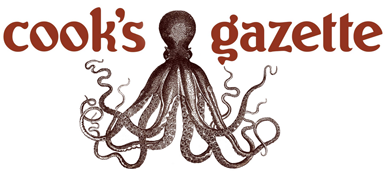
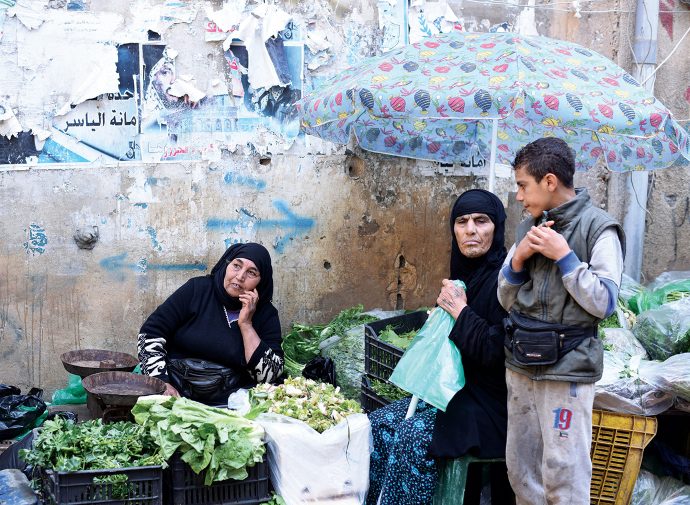
another absolutely incredible journey through food! thank you, Lisa, for this glimpse into this conflicted area and people that have confused me for so long. The circumstances are even more devastating than I imagined. I can feel the passion here. I’m so inspired by Miriam, these women and this project! It all looks delicious! lucky me to have had the opportunity to taste some of the dishes! xoxox